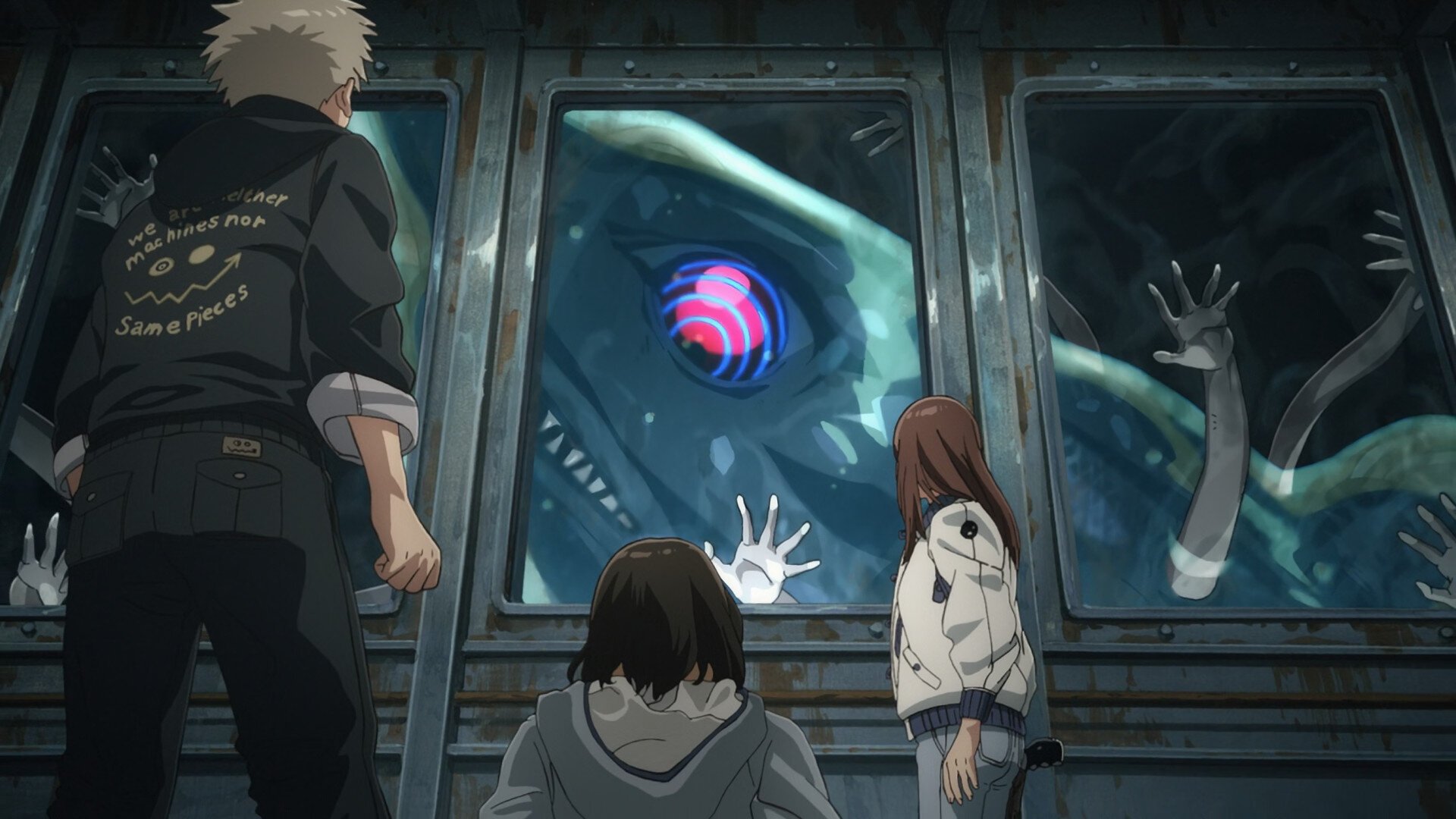Mind-bending, intense, and mysterious, it's hard to put Tengoku Daimakyo into words. The anime might be a post-apocalyptic adventure series where two teenagers fight against man-eating monsters, but it also happens to be a sci-fi-based contemplation of genetic experimentation, AI, and interventionism. The structure of the series is strange too, with its two seemingly unconnected parallel storylines. At the start, it's unclear why the show alternates between a futuristic utopian boarding school and the monster-filled ruins of Japan. However, there's something very compelling about the way this show unveils itself. When a question about the premise is answered, even more questions pop up. When the kids' wishes and predictions get fulfilled, it's never in the way they expect it would be. When the show drops an unexpected revelation, sometimes a rewatch of previous episodes is required to understand the weight of that scene. But once things click, the brilliance of the show is undeniable. Tengoku Daimakyo is strange but downright fascinating.
Synopsis
In the year 2024, the world has collapsed. Grotesque monsters lurk amongst the ruins of Japan, while remaining people scrape together what they can to survive. Kiruko, an odd-job girl in Nakano, accepts a mysterious woman's dying wish to take a boy named Maru to a place called Heaven. Maru is convinced that there will be a boy there who looks exactly like him.
Storyline
Fifteen years after an apocalypse, Maru hires Kiriko, an odd-job bodyguard with a mysterious past, to guard him from bandits and man-eating monsters as he searches for a place called Heaven.
TLDR
To be honest, we’re not 100% sure what’s happening, but we’re enjoying the ride anyway.
What stands out
The world of Tengoku Daimakyo can feel familiar to those who love post-apocalyptic stories. The horror of a chaotic, lawless world and the thrill of survival is to be expected. However, Tengoku Daimakyo stands out because of its body horror. The scariness of the man-eating hiruko pales in comparison to the horrifying ways people in this post-apocalyptic world violate each other’s bodies. While some of these acts aren’t currently possible, such as forced mind transfer, most of the terrors here are, and they happen to be perpetuated by those in charge. The show contrasts these nightmares with the soft and meaningful exchanges between the teens in both storylines. In doing so, Tengoku Daimakyo advocates for bodily autonomy, especially that of children.




